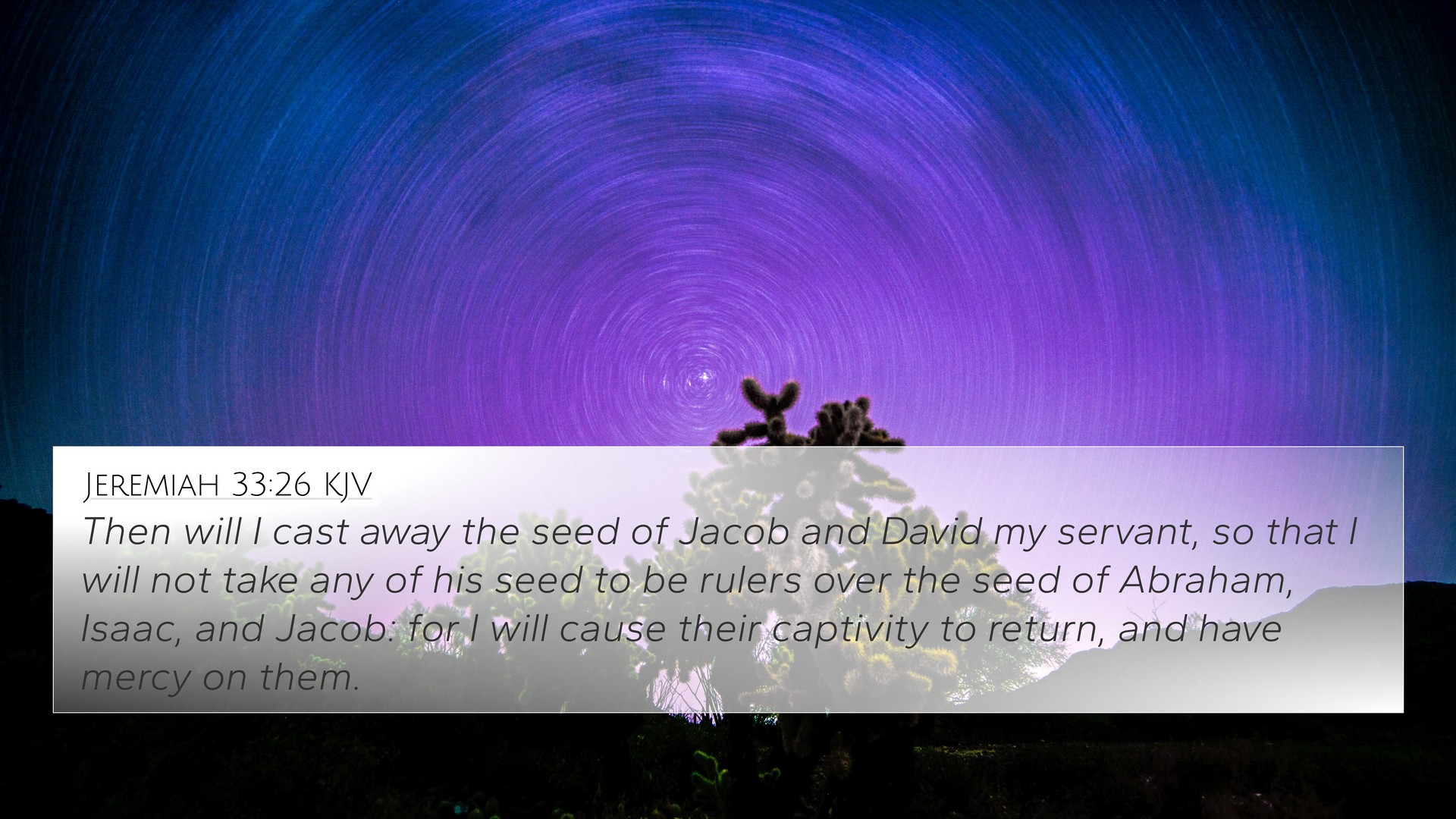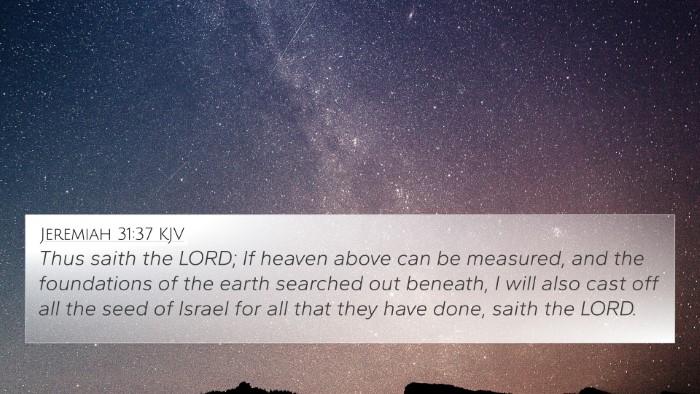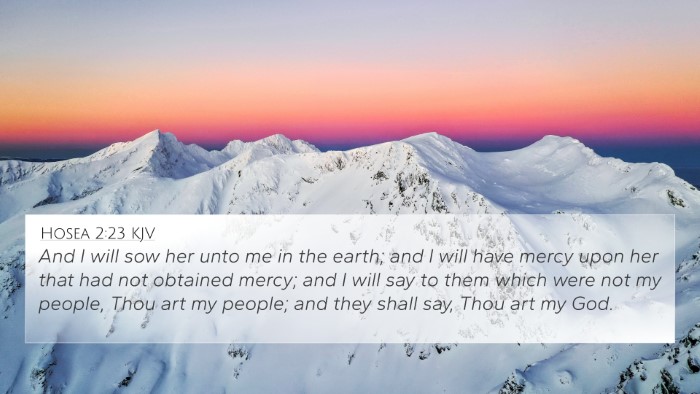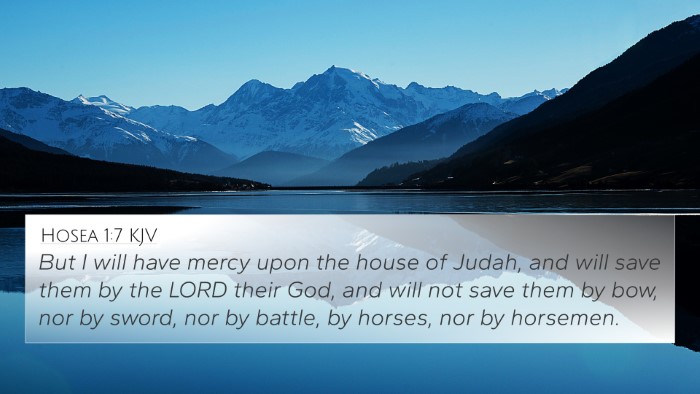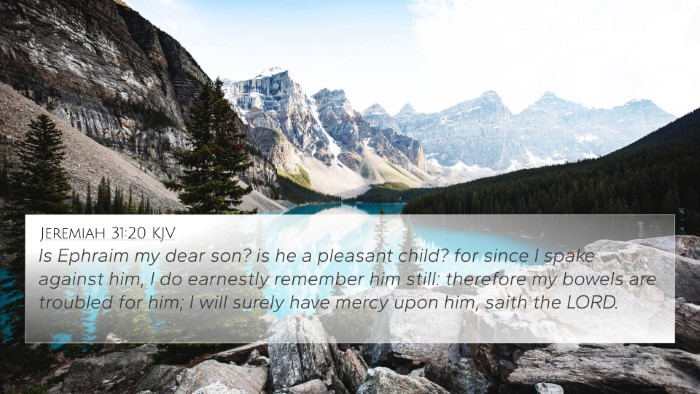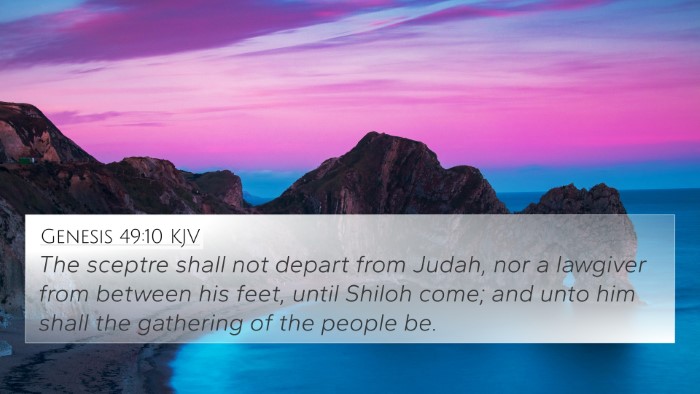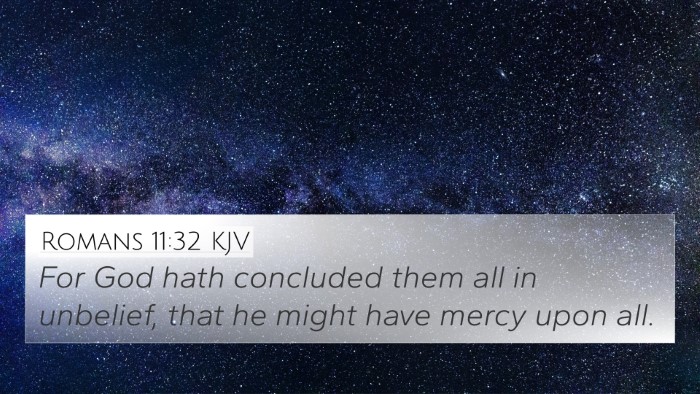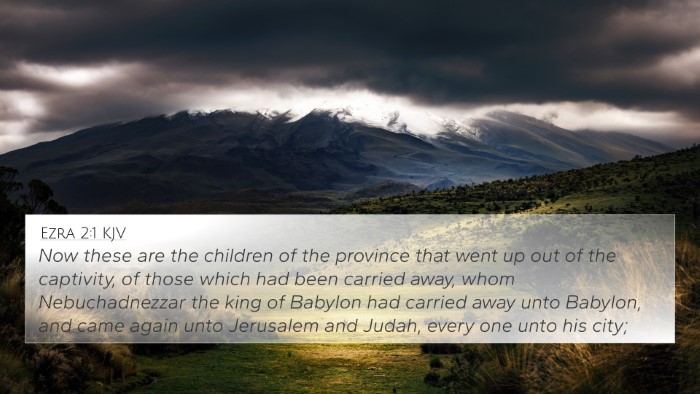Understanding Jeremiah 33:26
Jeremiah 33:26 states:
"Then will I cast away the seed of Jacob, and David my servant, so that I will not take any of his seed to be rulers over the seed of Abraham, Isaac, and Jacob: for I will cause their captivity to return, and have mercy on them."
This verse encapsulates themes of covenant, restoration, and divine mercy, highlighting God's unwavering commitment to His people despite their failings. Below is a summarized analysis based on public domain commentaries such as those by Matthew Henry, Albert Barnes, and Adam Clarke.
Verse Meaning
In Jeremiah 33:26, the Lord addresses the future of the Israelites in the context of their covenant relationship with Him. The fundamental themes reflect God’s promise of restoration and His covenantal faithfulness:
- Covenant Assurance: God affirms His commitment to the descendants of Jacob (Israel) and David, indicating that even though they have faced consequences for their actions, He has not abandoned them.
- Divine Mercy: The verse emphasizes God's mercy by declaring that He will restore the captivity of His people, showing that His love and grace prevail even in times of judgment.
- Restoration of Leadership: The reference to rulers from the line of David signifies future hope and the eventual coming of a messianic figure, which is a recurring theme throughout the scriptures.
Commentary Insights
From the commentaries:
- Matthew Henry: He emphasizes that God's choice of Jacob's seed indicates His grace and electing love, and even amidst hardships, the Lord's intentions for His people remain good.
- Albert Barnes: Barnes highlights that while Israel may have been cast away temporarily, this verse assures them of eventual restoration and the continuity of God's promises.
- Adam Clarke: Clarke notes the significant mention of the mercy to be shown to the Israelites, stressing that God's fidelity to His promises ensures that they will not remain permanently in a state of rejection.
Connections with Other Bible Verses
This verse interconnects with several key biblical texts, forming a comprehensive network of themes regarding God’s faithfulness and mercy. The following verses are noteworthy for comparative study:
- Isaiah 49:14-16: Here, God assures Israel of His unshakable love and remembrance, declaring that their names are engraved on His hands.
- Romans 11:1-2: Paul affirms that God has not rejected His people, whom He foreknew, showing continuity with God’s plan for Israel.
- Micah 7:18-19: These verses express God's forgiveness and mercy, highlighting His readiness to restore His people from sin.
- Psalm 89:30-34: The psalmist emphasizes God’s covenant with David, assuring that His covenant promises are irrevocable.
- Lamentations 3:22-23: A reflection on God’s mercy showing that His compassions never fail; they are new every morning.
- Ezekiel 36:10-11: God promises to restore His people and multiply them, aligning with His commitment to not cast them away.
- 2 Timothy 2:13: This New Testament reassurance that God remains faithful, even when His people are unfaithful, echoes the sentiments of divine mercy present in Jeremiah 33:26.
Thematic Bible Verse Connections
This verse invites deeper exploration of divine themes throughout scripture:
- God's Faithfulness Across Ages: Study how God’s promises resonate through the Old and New Testaments, demonstrating His unchanging nature.
- Restoration Literature: Look at the prophetic books that show God’s intention to restore Israel, which encompasses their spiritual and physical restoration.
- The Role of the Messiah: Investigate the expectation of the Messiah in relation to the Davidic lineage and how this connects to New Testament revelations.
Conclusion
Jeremiah 33:26 serves as a powerful reminder of God’s faithfulness and His readiness to restore His people to a right relationship with Him. Through cross-referencing various Biblical texts, we gain a deeper understanding of the cohesive narrative of mercy, fidelity, and restoration that permeates scripture. The connections between this verse and others illustrate the rich tapestry of God’s promises throughout Scripture.
For those interested in further study, employing tools for Bible cross-referencing can enhance understanding: consider utilizing a Bible concordance or cross-reference guide to explore these themes more deeply.
